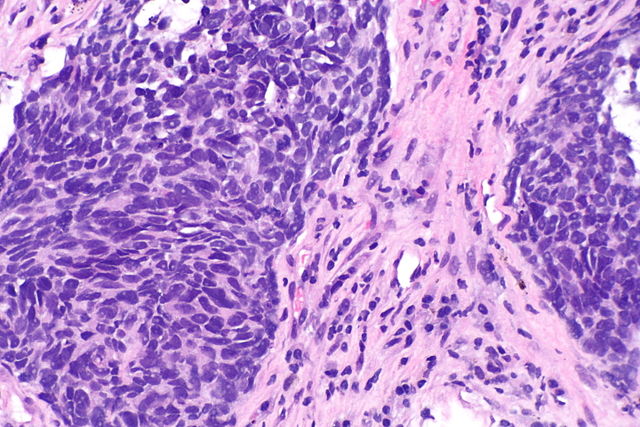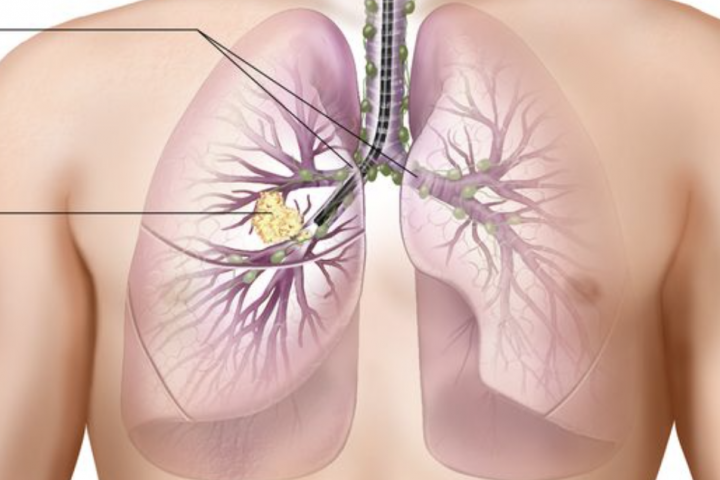ESMO 2023 Update – MARIPOSA: Amivantamab + Lazertinib Improves Progression-Free Survival Compared to Osimertinib in EGFR-Mutated, Treatment-Naïve Non-Small Cell Lung Cancer
 Lei Deng, MD
Lei Deng, MD
Assistant Professor/Medical Oncologist
Thoracic, Head & Neck Medical Oncology
University of Washington/Fred Hutchinson Cancer Center
Key Points:
- In phase 3 MARIPOSA trial, treatment-naïve, EGFR-mutated non-small cell lung cancer receive amivantamab + lazertinib vs. osimertinib vs. lazertinib
- At 2023 ESMO congress, progression-free survival was reported to be significantly improved in the amivantamab + lazertinib vs. osimertinib arm (23.7 vs. 16.6 months)
- Overall survival is a secondary endpoint, and is immature
- 35% discontinuation rate in the combo arm
- However, the toxicity and logistics burden of amivantamab is a concern, asking the need of de-escalation studies with biomarker guidance
Osimertinib is a well-tolerated EGFR tyrosine kinase inhibitor (TKI) for non-small cell lung cell patients harboring sensitizing EGFR mutation. Compared to prior-generations EGFR TKI, osimertinib improved progression-free survival (PFS) to 18.9 months and overall survival (OS) to 38.6 months1, 2. Osimertinib also has excellent CNS activity. Since then, research has been ongoing to further improve the outcome of patients with EGFR mutations.
The MARIPOSA was presented at 2023 ESMO congress in Madrid, Spain (Abstract Number: LBA14). This phase 3 trial randomized treatment naïve patients with EGFR mutation (Ex19del or L858R) 2:2:1 to amivantamab + lazertinib vs. osimertinib vs. lazertinib. The amivantamab + lazertinib (429 patients) vs. osimertinib (429 patients) results were presented. 41% of patients had a history of brain metastases. The median follow-up was 22 months. The median PFS was significantly improved in the amivantamab + lazertinib arm vs. osimertinib (23.7 vs. 16.6 months, HR, 0.70; 95% CI, 0.58–0.85). The objective response rate is similar (86% vs. 85%), the duration of response was longer in the combo arm (25.8 vs. 16.8 months). The OS result is immature, but shows a trend for the combo arm (HR, 0.80; 95% CI, 0.61 to 1.05). As expected, the combo arm has more toxicity. About 75% of G3 adverse events, including VTEs. 35% in the combo arm discontinued treatment while 14% in the Osimertinib.
This is a major breakthrough in the therapeutic treatment of EGFR-mutated non-small cell lung cancer. The PFS improvement is statistically significant and an absolute PFS improvement of 7.1 months is also clinically meaningful. 41% of patients had a history of brain metastasis. There is also a trend towards OS improvement. However, amivantamab is an every 2 weeks infusion with higher toxicity profile, that may compromise many patients’ quality of life. In the contrary, osimertinib is an oral TKI and patients can spend the majority of their time outside healthcare system. Future research should focus on de-escalation with biomarker guidance.
- Ramalingam SS, Vansteenkiste J, Planchard D, et al. Overall Survival with Osimertinib in Untreated, EGFR-Mutated Advanced NSCLC. N Engl J Med 2020;382:41-50.
- Soria JC, Ohe Y, Vansteenkiste J, et al. Osimertinib in Untreated EGFR-Mutated Advanced Non-Small-Cell Lung Cancer. N Engl J Med 2018;378:113-125.








